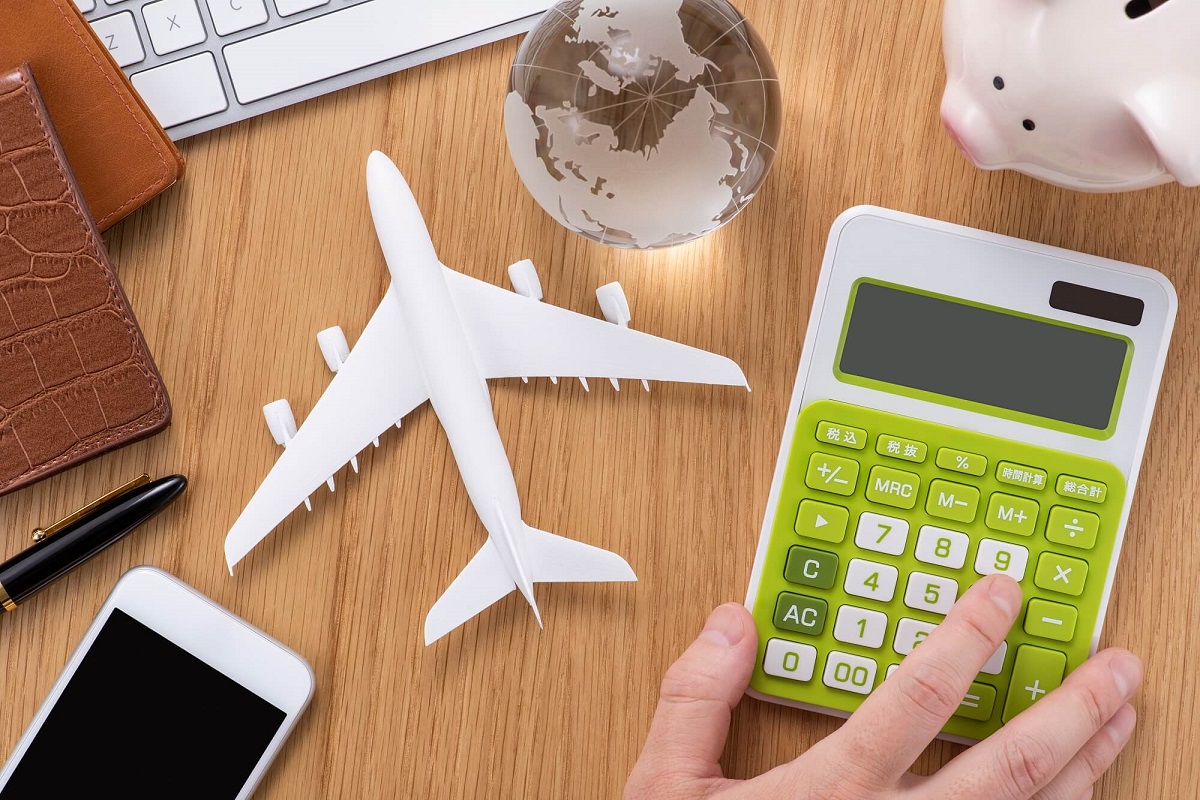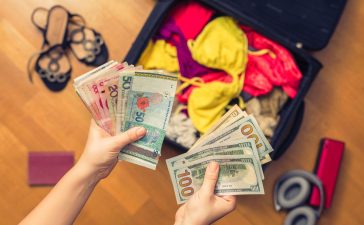When booking a flight, the initially advertised airfare doesn’t always reflect the full cost. Airline fees can significantly inflate the total price, turning what appears to be a budget-friendly fare into a much more expensive trip. Budget airlines like Allegiant Air and Spirit Airlines often entice travelers with low base fares but then add extra charges for various services like seat selection, in-flight refreshments, legroom, and boarding pass printing. Even major carriers like Delta and United have hefty fees for checked luggage that exceeds size, weight, or quantity restrictions.
While it’s challenging to entirely avoid airline fees, some strategies can help you minimize their impact. Here are various fees to be aware of and tips on how to reduce or avoid them when possible.

Baggage
Airline baggage fees have become a common and expected part of air travel, and it’s unlikely that the era of free luggage will return anytime soon. Most domestic airlines permit passengers to bring one carry-on bag and one personal item without additional charges, although budget airlines like Spirit Airlines and Allegiant may charge between $15 and $75 for carry-on luggage. JetBlue’s Blue Basic passengers don’t receive a carry-on bag beyond their personal item, and if they bring one, it will be checked with fees ranging from $65 to $180.
The real moneymaker for airlines is checked luggage. Southwest offers the first two checked bags for free, and JetBlue provides a free checked bag or two for specific ticket classes. However, most other major airlines charge around $25 for checked bags. Travelers often attempt to avoid these fees by packing everything in their carry-on and personal item or by wearing extra layers of clothing to reduce the weight of their suitcase and avoid overweight baggage charges.
Seat Selection
Many airlines charge additional fees for passengers who wish to select their seats in advance, with standard seats often costing around $10 and premium seats like exit rows or window seats incurring higher charges. Importantly, these fees usually apply to each leg of your journey, so if you have layovers or connecting flights, they can quickly add up.
One way to avoid seat selection fees is to skip this step when booking your ticket. Seat selection is optional, and many airlines offer another opportunity to choose your seats when you check in for your flight within 24 hours of departure. By setting a timer to check in exactly when the 24-hour window opens, you may have a better chance of finding available seats next to your travel companions. In the worst-case scenario, you might end up with a middle seat or have to sit separately from your travel party.
For families traveling with children, seating arrangements are more critical. The Department of Transportation is encouraging airlines to seat families together at no extra charge to help reduce the cost of air travel for families.
To navigate seat selection fees, it’s essential to be aware of the policies of different airlines. According to NerdWallet, basic seat selection fees range from $0 to $23 on major domestic airlines. Airlines like Alaska, Hawaiian, JetBlue, and United tend to have more reasonable prices, while Delta, American, Spirit, and Frontier charge significantly higher fees.
For instance, while Spirit Airlines may offer very affordable base ticket prices, selecting seats can cost an additional $23 per passenger for each leg of the journey. Depending on the size of your travel party, these fees can add up to hundreds of dollars. On the other hand, Alaska Airlines might have slightly higher ticket prices, but they offer free seat selection for basic economy passengers. It’s crucial to do the math and determine what makes the most financial sense for your situation.
Booking Fees
While booking flights online has become the standard practice, it’s essential to be aware that you might be paying extra for this convenience, particularly with budget airlines. Some airlines impose additional fees for booking flights electronically. For example, Allegiant charges an “Electronic Usage Charge” of $22 per passenger, per segment, and Spirit Airlines has a “Passenger Usage Charge” of $22.99 per passenger, per segment. Moreover, even purchasing tickets over the phone can result in an extra charge of $15 per person.
To avoid these booking fees, there is a somewhat inconvenient but money-saving alternative: purchasing your tickets in person at the airline’s ticket counters. This process involves driving to the airport, finding parking, locating the airline’s ticket counters (which are typically open only during specific hours), and buying your tickets from a representative. It’s worth noting that baggage fees may also increase if you pay for them at the airport. While this option might be too cumbersome for most travelers, it could be worthwhile for large families with multiple layovers, as the savings may outweigh the inconvenience.
Change Fees
Many airlines have become more lenient with their change fee policies during the pandemic, with some even eliminating change fees altogether. However, it’s crucial to familiarize yourself with your chosen airline’s specific policy before booking your flight.
Low-cost carriers tend to have stricter change fee policies. For example, Spirit Airlines only allows free changes if made 60 days or more ahead of your departure date. After that, fees gradually increase, reaching $99 if the change is made within 48 hours of the flight. Frontier Airlines has similar policies, with a maximum fee of $79 for changes made within six days of the flight. Some airlines only charge for same-day changes, such as Delta ($75) and Alaska ($50).
For the most flexibility, it’s advisable to make any changes to your flights within 24 hours of your original booking. If that’s not possible, you can explore the option of getting reimbursed through your credit card company. Credit cards with travel insurance, like Chase Sapphire, often provide refunds for trips canceled due to various reasons such as illness, death, weather-related issues, and other factors.
Here’s a pro tip from Lauren LaBar: If you have a basic economy fare that you need to change, consider upgrading to economy for a small fee, which can help salvage the cost of your ticket.
Boarding Passes
Paying additional fees for having your boarding pass printed at the airport might seem like an unnecessary expense. Spirit Airlines charges $25 per pass, and Allegiant charges $5 per pass. If you’re traveling with your family, these fees can add up quickly.
Fortunately, there are two simple ways to avoid these charges:
- Print your boarding passes at home.
- Save the boarding passes on your phone or within the airline’s mobile app.
Downloading airline apps onto your phone is a convenient choice, offering various benefits during your travels. Therefore, it’s a smart move to have these apps readily available, and it also saves you from having to pay these avoidable fees.
In-Flight Amenities
Airline fees don’t stop at the ticket purchase; you might encounter additional charges while on the plane. Airlines can still make money by offering food, beverages, WiFi, and even amenities like blankets and pillows, but these come at a cost.
While some airlines provide free snacks and non-alcoholic beverages, meals or premium snacks can cost up to $12, and alcoholic drinks like beer, wine, and spirits range from $5 to $16 per drink. To save money, consider packing your own snacks from home (just ensure they’re TSA-approved) and bring a reusable water bottle to fill up at the airport. Airport prices aren’t much lower, so it’s wise to plan ahead.
In-flight WiFi can also be an additional expense. JetBlue is the only U.S. airline currently offering free WiFi to all passengers. Delta has started offering free WiFi on some flights, with plans to expand this offering through 2023. Most airlines provide internet access for a fee, which can vary depending on the duration or type of plan. For instance, Southwest offers WiFi at a flat rate of $8 per day. If you only need access for texting, Alaska Airlines has a text-only package.
When it comes to comfort items, some airlines charge for blankets and pillows, while others don’t provide them at all in economy class. It’s a good idea to stay cozy by packing your own neck pillow and a small blanket or a long scarf. This way, you avoid sharing items that have been used by numerous passengers.
You Might Also Like
How to Travel the World After You Retire
Retirement, a dream for many, represents the prospect of leisurely afternoons, the freedom to rediscover long-neglected hobbies, and the ability...
HOW TO SAVE MONEY FOR TRAVEL
Are you always daydreaming about your next adventure as soon as you return from a trip? The idea of exploring...
Road Trip to These Budget-Friendly December Destinations
While many dream of embarking on a mid-winter journey to enchanting destinations like Vienna's Christmas markets, the snowy slopes of...
Travel Agents: Pros and Cons Explained
When you're gearing up for a trip, you might be contemplating the use of a travel agent to assist with...










